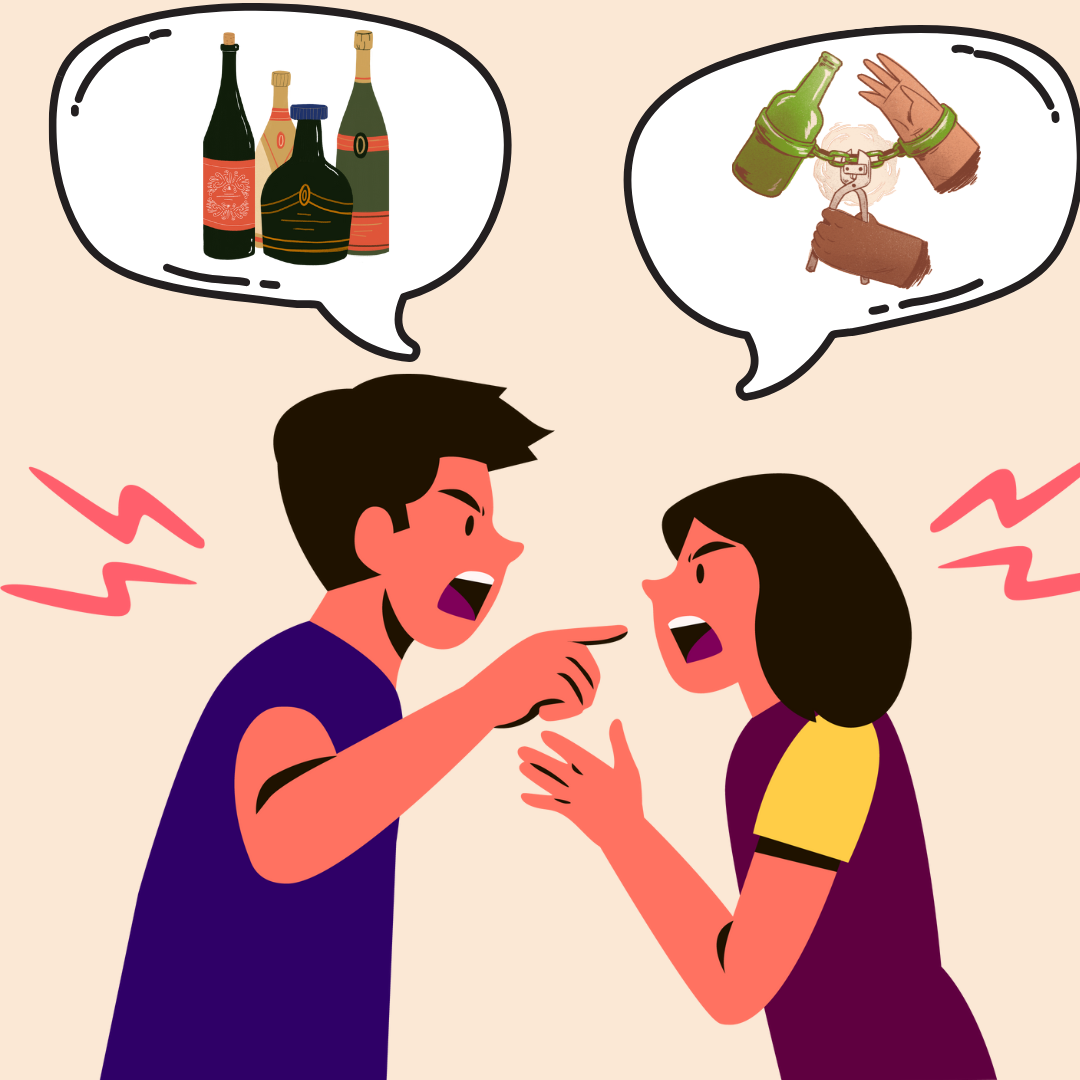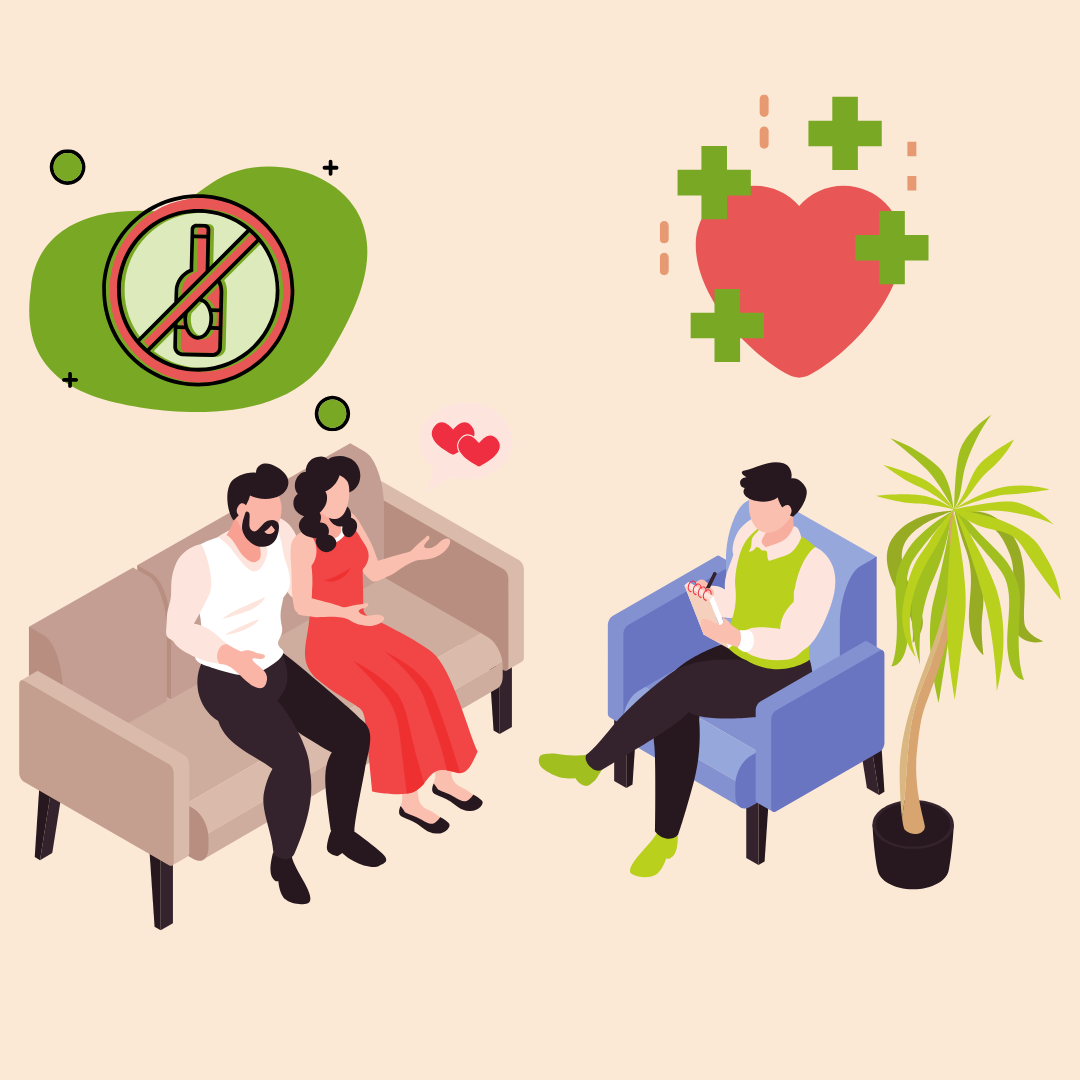When Addiction is the Third Partner
It’s Not Just You and Me: Navigating Relationships When Addiction is the Third Partner
When you’re in a relationship, you want to feel like it’s just you and your partner against the world. But when addiction enters the picture, it can feel like there’s a third person in the relationship, taking up space, time, and energy that should belong to you both. Addiction doesn’t just affect the person struggling with it—it affects the entire relationship, creating distance, mistrust, and hurt feelings.
If this sounds familiar, know that you’re not alone, and more importantly, you don’t have to figure this out by yourself. Therapy can help you and your partner navigate these challenges and start building a healthier, stronger relationship.
Addiction’s Role in the Relationship
Addiction is sneaky. It starts as a small habit or a way to cope but can grow into something that dominates everything else. Maybe your partner’s drinking, drug use, gambling, or even behaviors like gaming or shopping have started to interfere with your connection. Or maybe you’re the one battling addiction and feel guilty about how it’s affecting your partner.
No matter which side of the struggle you’re on, addiction can create:
Broken Trust: Lies, secrecy, and broken promises become the norm.
Communication Problems: Arguments about the addiction take over, and deeper conversations get lost.
Emotional Disconnection: You start to feel like roommates rather than partners.
Financial Stress: Money might disappear, creating arguments or anxiety.
It’s easy to think, “If only they would stop, everything would be fine.” But addiction is rarely just about the substance or behavior—it’s often tied to deeper struggles like stress, trauma, or unmet emotional needs. That’s why tackling it requires more than willpower.
The Impact of Addiction on Relationships
Addiction doesn’t just affect the individual—it impacts the entire relationship. Partners of those struggling with addiction often feel increased stress, anxiety, and even symptoms of depression as they try to navigate the challenges addiction brings into their lives. For many couples, addiction can lead to a breakdown in trust, communication, and connection, leaving both partners feeling isolated and stuck.
These struggles are a reminder that addiction doesn’t just impact one person—it creates ripple effects that touch everyone in its orbit, especially loved ones.
Why Therapy Can Be a Game-Changer
Therapy isn’t just for the person dealing with addiction—it’s for the relationship. Here’s why couples therapy can be a lifeline:
1. You Get a Safe Space to Talk
Let’s be real—talking about addiction is hard. It’s emotional, and things can escalate quickly. In therapy, you have a neutral, supportive space where both of you can speak honestly without fear of judgment or conflict.
2. You Learn to Understand Each Other
Addiction doesn’t define a person, but it does change how they think, act, and feel. Therapy helps both partners understand what’s really going on—why the addiction started, how it’s affecting your relationship, and what you can do about it.
3. You Build Better Communication Skills
When addiction is involved, it’s easy for conversations to turn into fights or for one partner to shut down. A therapist can teach you how to communicate in ways that build connection rather than create more distance.
4. You Address the Root Causes
If addiction is a symptom of deeper issues, therapy can help uncover and address them. This might involve exploring past trauma, managing stress, or learning healthier coping mechanisms.
5. You Work Together to Rebuild Trust
Rebuilding trust takes time, but therapy provides a roadmap. You’ll learn how to set boundaries, hold each other accountable, and take small, meaningful steps toward rebuilding what was lost.
But What If My Partner Won’t Go?
It’s common to feel stuck if your partner doesn’t want to go to therapy. Here’s the thing: you can still go on your own. Individual therapy can help you process your feelings, set healthy boundaries, and learn how to approach the situation with compassion and clarity. Often, when one person starts making positive changes, it encourages the other to join in.
What Therapy Can Look Like
Therapy isn’t about placing blame or “fixing” one person. It’s about working together to understand and heal. Sessions might include:
Exploring how addiction affects your relationship dynamic.
Learning tools to handle triggers and avoid enabling behaviors.
Setting goals for individual recovery and shared relationship growth.
Building emotional and physical intimacy in a healthy way.
Taking the First Step
The idea of starting therapy can feel overwhelming, especially when things already feel tense. But consider this: addiction thrives in secrecy and shame, and therapy shines a light on those dark corners.
By reaching out for help, you’re saying, “Our relationship matters. We’re worth fighting for.” Whether you’re the one struggling with addiction or supporting someone who is, therapy can give you the tools and hope to move forward.
You’re Not Alone
Addiction can make you feel isolated, but there are many couples who’ve faced it and come out stronger on the other side. Therapy can be the place where you and your partner rediscover what brought you together in the first place and start creating a future that feels good for both of you.
It’s not just you and me—it’s you, me, and addiction. But with the right support, you can learn to take addiction out of the equation and reclaim your relationship.
Why wait? Take the first step today—because you and your partner deserve better.



